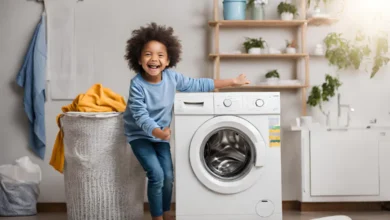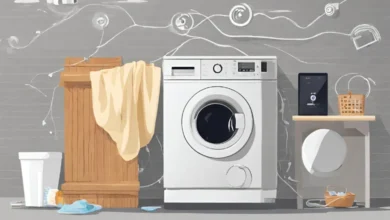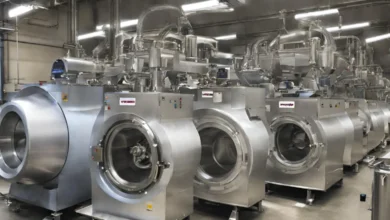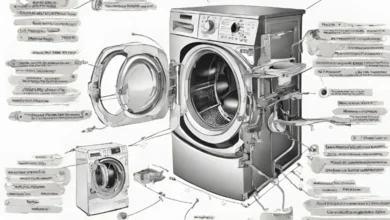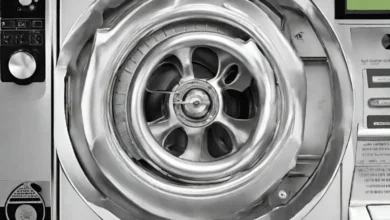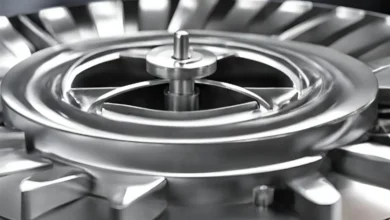Comparing Energy-Saving Technologies in Washing Machines

In today’s environmentally conscious world, energy efficiency has become a pivotal factor in consumer choices. This blog aims to delve into the intricate realm of energy-saving technologies in washing machines, shedding light on the nuances that differentiate various models.
Energy efficiency not only contributes to a greener planet but also translates to cost savings for consumers. Washing machines, being a household staple, play a crucial role in determining energy consumption patterns.
Front-Loading vs. Top-Loading Machines
Front-Loading Efficiency
Front-loading washing machines have gained popularity for their energy efficiency. These models utilize a horizontal drum orientation, which reduces water usage and allows for faster spin speeds, extracting more water during the final spin cycle.
Top-Loading Innovations
Recent innovations in top-loading machines challenge the front-loading dominance. Some top-loading models now incorporate advanced agitator designs and improved water management systems to enhance energy efficiency.
Inverter Technology: A Game-Changer
Understanding Inverter Motors
Inverter technology, a breakthrough in washing machines, replaces traditional fixed-speed motors with variable-speed ones. This optimizes energy consumption by adjusting motor speed based on the load and requirements.
Benefits of Inverter Technology
Inverter-driven washing machines offer silent operation, longer lifespan, and precise control over energy usage. The initial investment is offset by long-term savings on electricity bills.
Also Read: Best Washing Machine in India
Heat Pump Dryers vs. Conventional Dryers
Heat Pump Dryers: A Greener Alternative
Traditional dryers rely on electric or gas heating elements, consuming substantial energy. Heat pump dryers, on the other hand, leverage air-to-air exchange systems, recycling heat and significantly reducing energy consumption.
Considering Performance
While heat pump dryers excel in energy efficiency, some users argue that they may take longer to dry clothes. However, advancements in heat pump technology aim to address this concern without compromising efficiency.
Smart Washing Machines and Energy Management
The Rise of Smart Appliances
With the advent of the Internet of Things (IoT), smart washing machines have entered the market. These appliances integrate sensors and connectivity to optimize energy usage by adapting to usage patterns and energy tariffs.
Energy Management Apps
Smart washing machines often come equipped with companion apps that allow users to monitor and control energy consumption remotely. These apps provide insights into energy-efficient usage and offer suggestions for further optimization.
Water-Saving Technologies
Dual Spray Rinse Systems
Some washing machines incorporate dual spray rinse systems that efficiently remove detergent residues while minimizing water usage. This innovation ensures cleaner clothes with reduced environmental impact.
Load-Sensing Technology
Load-sensing technology adjusts water levels based on the size of the laundry load. This not only conserves water but also optimizes energy usage, as the machine adapts its operation to the specific load requirements.
Eco-Friendly Detergents and their Role
Detergent Impact on Energy Consumption
The type of detergent used can influence the energy efficiency of washing machines. Eco-friendly detergents, designed for cold water washes, contribute to overall energy savings by reducing the need for hot water.
Phosphate-Free and Biodegradable Options
Exploring detergents that are phosphate-free and biodegradable not only supports environmental conservation but also ensures that washing machine wastewater has a minimal ecological impact.
Regulatory Standards and Energy Labels
Understanding Energy Star Ratings
Consumers can make informed decisions by looking at energy labels and certifications. Understanding Energy Star ratings and other regulatory standards helps assess the energy efficiency of washing machines before purchase.
Government Incentives for Energy-Efficient Appliances
Some regions offer incentives or rebates for purchasing energy-efficient appliances. Exploring these opportunities can further motivate consumers to invest in washing machines with advanced energy-saving technologies.
Conclusion
In conclusion, the world of energy-saving technologies in washing machines is dynamic and multifaceted. Front-loading efficiency, inverter technology, heat pump dryers, smart features, water-saving technologies, eco-friendly detergents, and regulatory standards all contribute to creating a spectrum of options for consumers. By understanding these innovations, consumers can make informed decisions that align with their environmental concerns and budget considerations. As technology advances, the pursuit of energy efficiency in washing machines continues to shape the future of household appliances.
